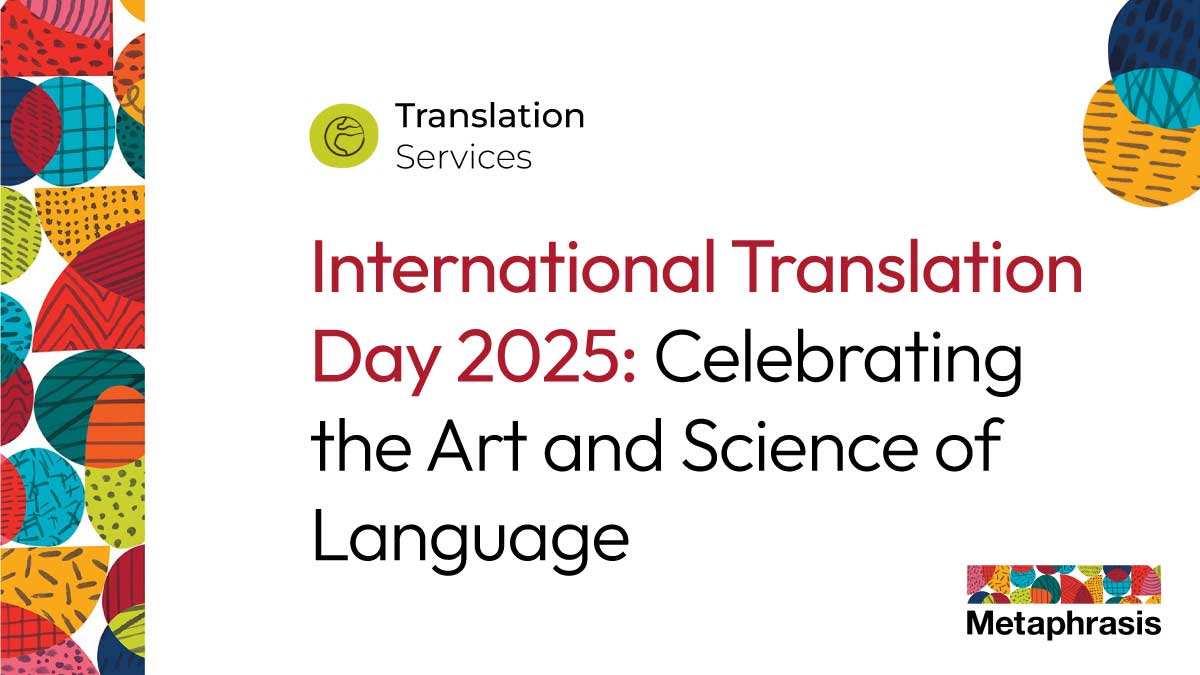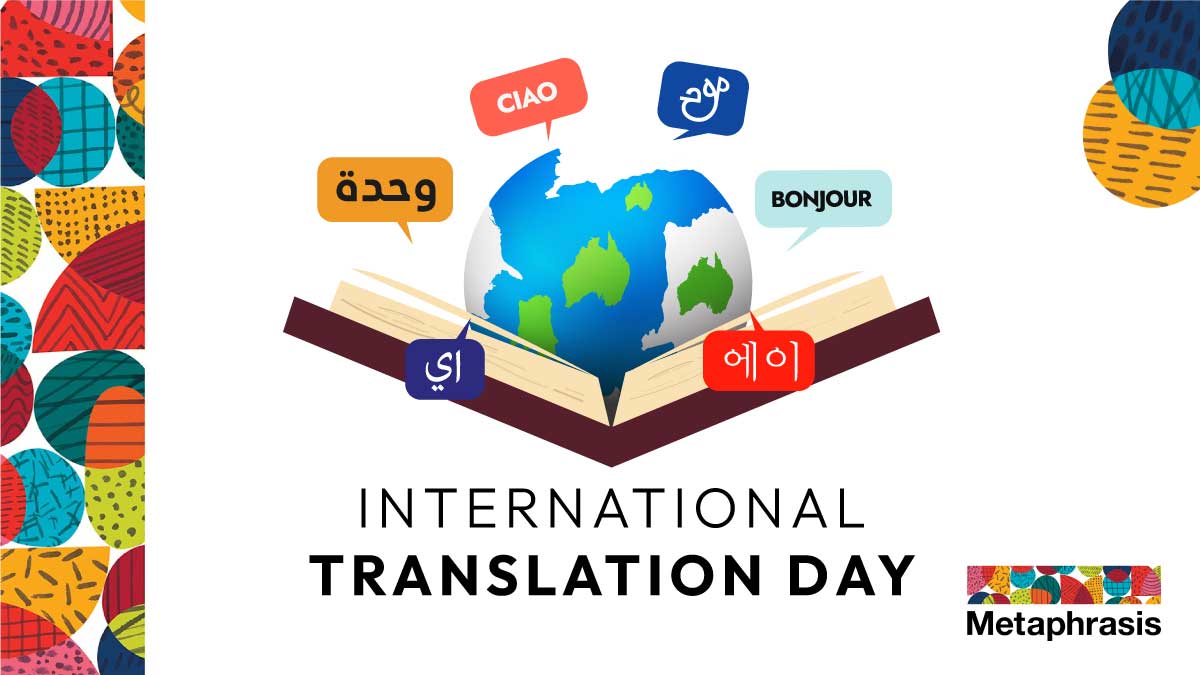
International Translation Day 2025: Celebrating the Art and Science of Language
Every Sept. 30 the world comes together to take a moment to appreciate a profession that is too often working quietly in the background, but one that has profound effects on how we communicate globally: translation. Referred to as International Translation Day, this celebration is intended to honour the work of translators and interpreters who connect nations and when they help bring people closer together; their organizations carry out professional activities that raise public awareness of translation in various countries.
For a collection of nations as diverse as the United States—where more than 350 languages are spoken at home, according to the U.S. Census Bureau—translation is more than important; it’s essential. And companies such as Metaphrasis are honored to be a part of this continuous endavor that promotes clarity, accuracy and cultural competence – one industry at a time.
Why September 30? The History of International Translation Day
History International Translation Day has been celebrated since the year 1953 when it was established by the International Federation of Translators (FIT). In 2017, the UN officially acknowledged the day, making it part of the global calendar.
The selected date is September 30, a date that commemorates the feast day of St. Jerome —the patron saint of translators—most known for translating the Bible into Latin. It was through his work that knowledge became accessible to the people in his time — a mission that carries on until today, done so by translators.
Why Translation Matters in the U.S.
In the United States, translation touches nearly every aspect of life. From hospitals to classrooms, courtrooms to corporate boardrooms, translators ensure that no voice goes unheard. Here’s why their work is so vital:
- Healthcare access: Patients deserve to fully understand diagnoses, treatments, and instructions. Medical translators and interpreters ensure communication is clear, preventing mistakes and improving outcomes.
- Legal fairness: Court interpreters uphold justice by making sure individuals understand proceedings, regardless of their native language.
- Education: Schools across the U.S. rely on translation services to engage parents and guardians in their children’s academic journeys.
- Business growth: Companies that invest in translation can reach diverse markets both locally and globally, opening doors to new opportunities.
At Metaphrasis, we are honored to witness how translation empowers individuals and strengthens organizations. Whether it’s a Spanish-speaking family navigating a hospital visit or a business expanding internationally, effective communication makes all the difference.
The Art and Science of Translation
Translation is often described as an “art,” but it is equally a “science.” Why? Because it requires both creativity and precision.
Cultural Understanding
Translation isn’t just about words—it’s about meaning. A literal translation can miss the nuance or even change the intended message. For example, idioms like “kick the bucket” in English need careful adaptation to make sense in another language.
Specialized Knowledge
Translators often specialize in areas like medicine, law, or technology. These fields demand accuracy, as even a small error could have serious consequences.
Technology Integration
While tools like machine translation and AI-powered platforms are becoming more common, human translators remain irreplaceable. At Metaphrasis, we embrace technology as a support tool but rely on our professionals’ cultural expertise to ensure accuracy and sensitivity.

Celebrating International Translation Day in the U.S.
International Translation Day is more than just a date on the calendar—it’s a moment to recognize the professionals who make communication possible. Across the U.S., organizations celebrate by hosting workshops, conferences, and recognition events.
The American Translators Association (ATA), one of the largest professional networks in the country, often marks the occasion with webinars and educational initiatives. At Metaphrasis, we view September 30 as a chance to reflect on our mission: to break down language barriers and create more inclusive communities.
How Businesses and Communities Can Participate
Want to get involved in International Translation Day? Here are a few ideas:
- Thank your translators and interpreters: A simple acknowledgment goes a long way.
- Promote multilingual communication: Share translated content on your website, social media, or newsletters.
- Host cultural awareness sessions: Encourage employees to learn about different cultures and languages.
- Partner with experts: Work with professional translation services like Metaphrasis to ensure your materials are accurate and culturally relevant.
By celebrating, businesses and organizations not only recognize the work of translators but also emphasize the value of inclusivity and accessibility.
The Future of Translation: Human Expertise Meets AI
The translation industry in the U.S. is growing rapidly. The Bureau of Labor Statistics projects faster-than-average job growth for interpreters and translators in the coming years.
Technology is advancing, but human expertise remains the heart of translation. Tools may assist with speed, but they cannot replace the cultural awareness, empathy, and ethical judgment that a professional translator brings. At Metaphrasis, we believe the future lies in collaboration between humans and technology—where AI handles repetitive tasks while experts ensure meaning and context are never lost.
Conclusion
On International Translation Day, we celebrate the art and science of translation—the delicate balance of precision, culture, and communication. In the United States, where multilingualism is part of everyday life, translators are essential to creating fairness, equity, and connection.
At Metaphrasis, we’re proud to stand at the forefront of this work, helping individuals, businesses, and communities communicate with confidence and respect. This September 30, let’s take a moment to appreciate the professionals who make understanding possible across languages and cultures.
Because at the end of the day, translation isn’t just about words—it’s about people.
